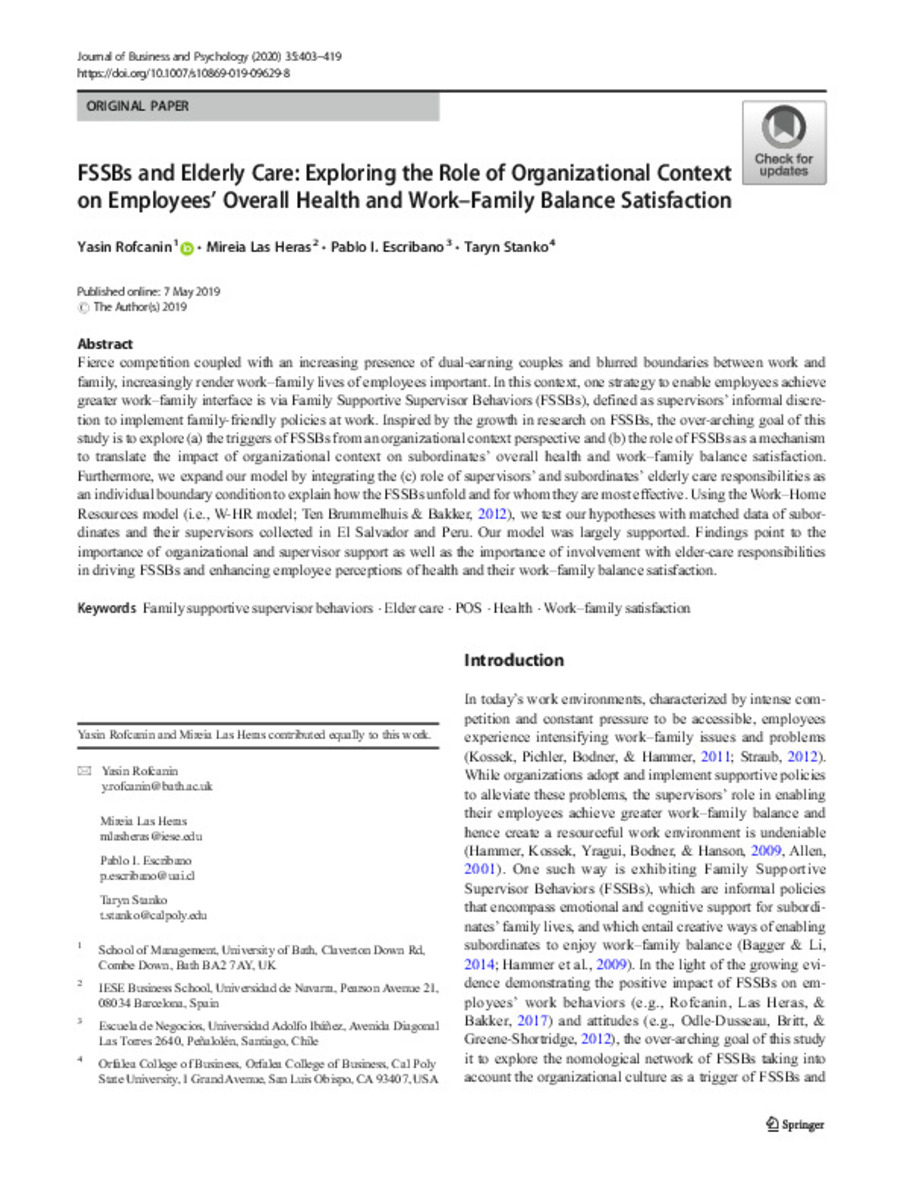FSSBs and Elderly Care: Exploring the Role of Organizational Context on Employees’ Overall Health and Work–Family Balance Satisfaction
Keywords:
Family supportive supervisor behaviors
Elder care
POS
Health
Work–family satisfaction
Editorial note:
Springer Nature remains neutral with regard to
jurisdictional claims in published maps and institutional affiliations.
Note:
This article is distributed under the terms of the Creative
Commons Attribution 4.0 International License (http://
creativecommons.org/licenses/by/4.0/), which permits unrestricted use,
distribution, and reproduction in any medium, provided you give appropriate credit to the original author(s) and the source, provide a link to the
Creative Commons license, and indicate if changes were made.
Citation:
Rofcanin, Y. (Yasin); Las-Heras-Maestro, M. (Mireia); Escribano, P.I. (Pablo I.); et al. "FSSBs and Elderly Care: Exploring the Role of Organizational Context on Employees’ Overall Health and Work–Family Balance Satisfaction". Journal of Business and Psychology. 35, 2020, 403 - 419
Statistics and impact
0 citas en

0 citas en

Items in Dadun are protected by copyright, with all rights reserved, unless otherwise indicated.







